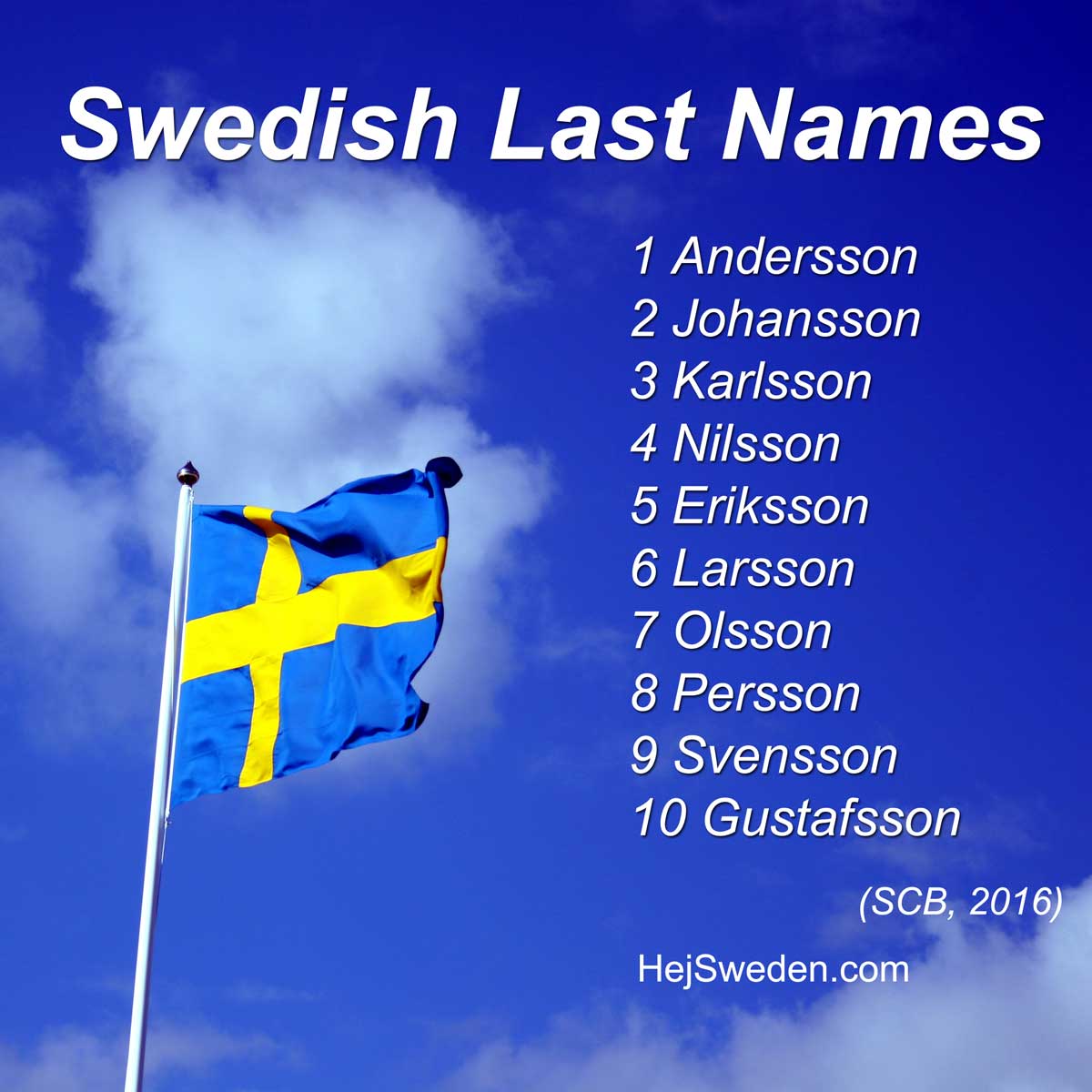Understanding Common Norwegian Last Names: A Deep Dive Into Heritage And Meaning
Norwegian last names carry a rich tapestry of history, culture, and significance that reflects the nation's heritage. These names, often derived from nature, professions, or familial lineage, provide insight into the lives of Norwegians through the ages. In this article, we will explore the most common Norwegian last names, their meanings, and the historical context behind them.
As we delve into this fascinating topic, we will not only look at the names themselves but also the cultural practices surrounding their usage. Understanding these names is essential for anyone interested in genealogy, Norwegian culture, or simply the beauty of language. Whether you have Norwegian roots or are just curious about the names that shape this northern country, this article aims to provide a comprehensive overview.
From traditional patronymics to modern surnames, the evolution of Norwegian last names is a story of adaptation and identity. Join us as we uncover the meanings behind these names and what they tell us about the people of Norway.
Table of Contents
- Common Norwegian Last Names
- Historical Background of Norwegian Surnames
- The Patronymic System in Norway
- Regional Variations of Norwegian Last Names
- Meanings Behind Common Norwegian Last Names
- Famous Norwegians and Their Names
- How to Research Norwegian Last Names
- Conclusion
Common Norwegian Last Names
Norwegian last names often reveal much about the geography and history of the region. Here are some of the most common surnames in Norway:
- Hansen
- Johansen
- Olsen
- Lie
- Nordstrom
- Pedersen
- Jensen
- Andersen
These names typically have origins that date back centuries and are still prevalent in modern Norway.
Historical Background of Norwegian Surnames
The evolution of surnames in Norway is closely tied to the country's history. In the early days, Norwegians used a system of patronymics, where a child's surname was derived from the father's first name combined with "sen" (meaning "son of") or "datter" (meaning "daughter of").
This system reflects the strong familial ties and the importance of lineage in Norwegian culture. Over time, as the population grew and society became more complex, the need for fixed surnames arose.
Transition to Fixed Surnames
In the 19th century, Norway began transitioning to fixed surnames. This change was influenced by various factors, including the need for better organization in civil registries and census data. Many families adapted their patronymic names into fixed surnames, leading to the surnames we recognize today.
The Patronymic System in Norway
Understanding the patronymic system is crucial for anyone interested in Norwegian last names. This unique naming convention has shaped many common surnames.
- Hansen: Son of Hans
- Johansen: Son of Johan
- Olsen: Son of Ole
These names signify the importance of familial relationships and heritage in Norwegian culture.
Regional Variations of Norwegian Last Names
Just like any country, Norway has regional variations in surnames that reflect local history and culture. For example, in Northern Norway, names like "Nilsen" (son of Nils) are more common, while in the West, you might find "Fjeld" which means "mountain." This regional diversity adds an extra layer of complexity to understanding Norwegian surnames.
Influence of Geography on Surnames
The geography of Norway, with its mountains, fjords, and coastal areas, has influenced the surnames of its people. Many last names are derived from geographical features, indicating where a family might have lived or worked.
Meanings Behind Common Norwegian Last Names
Each surname often has a meaning that provides insight into the ancestors' lives. For instance:
- Jensen: Son of Jens, a common first name.
- Haugland: Means "hill land," indicating a geographical feature.
- Skogen: Means "the forest," reflecting the natural surroundings.
Understanding these meanings can offer deeper appreciation for Norwegian culture and the significance of names.
Famous Norwegians and Their Names
Numerous notable figures in history and contemporary society carry these common surnames. Some examples include:
- Henrik Ibsen: A renowned playwright, his surname is a reflection of traditional naming practices.
- Edvard Munch: The famous painter known for "The Scream," his last name is derived from a common Norwegian root.
- Fridtjof Nansen: An explorer and humanitarian, his last name is emblematic of Norwegian heritage.
How to Research Norwegian Last Names
If you're interested in researching Norwegian last names, consider the following methods:
- Explore genealogy websites and databases.
- Consult local historical societies in Norway.
- Utilize census records and civil registries.
- Engage with online forums dedicated to Norwegian genealogy.
These resources can help you uncover the history and significance of your last name.
Conclusion
Norwegian last names are a fascinating reflection of the country’s cultural heritage and history. From understanding the patronymic system to exploring regional variations and meanings, these names tell the story of Norway and its people. We invite you to leave a comment below, share this article with others, or explore more articles on our site to deepen your understanding of Norwegian culture.
With every name, there is a story waiting to be discovered. Embrace the journey of exploration and learn more about the rich tapestry of Norwegian surnames!
Watch The Maze Runner Movie For Free: A Complete Guide
Discovering Yaba Tech Portal: Your Ultimate Guide To Technology And Innovation
Understanding NBA YoungBoy's Parents: A Deep Dive Into His Family Background


